American Life in Poetry :: Ron Koertge
American Life in Poetry: Column 609
BY TED KOOSER, U.S. POET LAUREATE
We’ve been selecting poems for this column for more than ten years and I can’t remember ever publishing a poem about a cat. But here at last is a cat, a lovely old cat. Ron Koertge lives in California, and his most recent book of poems is Vampire Planet: New & Selected Poems, from Red Hen Press.
Lily
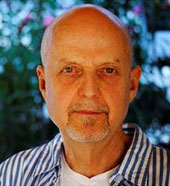 No one would take her when Ruth passed.
No one would take her when Ruth passed.
As the survivors assessed some antiques,
I kept hearing, “She’s old. Somebody
should put her down.”
I picked her up instead. Every night I tell her
about the fish who died for her, the ones
in the cheerful aluminum cans.
She lies on my chest to sleep, rising
and falling, rising and falling like a rowboat
fastened to a battered dock by a string.
We do not accept unsolicited submissions. American Life in Poetry is made possible by The Poetry Foundation (www.poetryfoundation.org), publisher of Poetry magazine. It is also supported by the Department of English at the University of Nebraska-Lincoln. Poem copyright ©2016 by Ron Koertge, “Lily,” from Vampire Planet: New & Selected Poems, (Red Hen Press, 2016). Poem reprinted by permission of Ron Koertge and the publisher.Introduction copyright ©2016 by The Poetry Foundation. The introduction’s author, Ted Kooser, served as United States Poet Laureate Consultant in Poetry to the Library of Congress from 2004-2006.

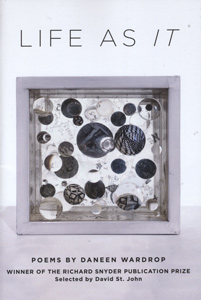 With November practically over, let’s take a timeout to look back at award-winning small press and university press books published in the past few months.
With November practically over, let’s take a timeout to look back at award-winning small press and university press books published in the past few months.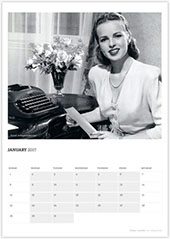 This has got to be the perfect gift for at least one person on your holiday list: a
This has got to be the perfect gift for at least one person on your holiday list: a  Fiction Contest Winner “The Colonel’s Boy” by Timothy Dumas is highlighted in the autumn 2016 issue of
Fiction Contest Winner “The Colonel’s Boy” by Timothy Dumas is highlighted in the autumn 2016 issue of  “to pursue the unattainable” (2011; mixed media on paper; 22″ x 30″) from Carol Collicut’s Marcus Aurelius Series is featured on the autumn 2016 cover of
“to pursue the unattainable” (2011; mixed media on paper; 22″ x 30″) from Carol Collicut’s Marcus Aurelius Series is featured on the autumn 2016 cover of 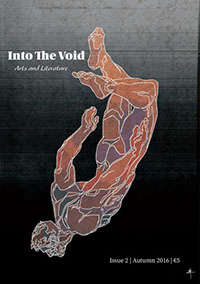 Published out of Dublin, Ireland, this second issue of
Published out of Dublin, Ireland, this second issue of 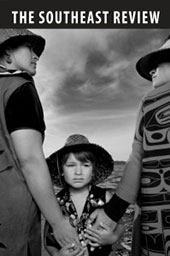 NewPages will always favor any lit mag cover that features the Detroit Tigers “D” on its cover. Though the black and white rendition of “An Ode to Farad #1” by Jamea Richmond-Edwards doesn’t quite do it justice, readers can find the full-color image inside
NewPages will always favor any lit mag cover that features the Detroit Tigers “D” on its cover. Though the black and white rendition of “An Ode to Farad #1” by Jamea Richmond-Edwards doesn’t quite do it justice, readers can find the full-color image inside  Yusuf Saadi is the winner of
Yusuf Saadi is the winner of  November 2016
November 2016 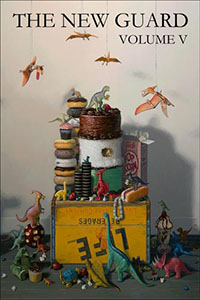 This whimsical “Dinosaur Feeding Frenzy” by Robert C. Jackson on the cover of Vol. V of
This whimsical “Dinosaur Feeding Frenzy” by Robert C. Jackson on the cover of Vol. V of 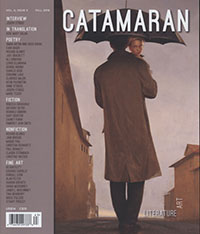 I couldn’t look away from this child’s searching expression on the fall 2016 cover of Catamaran. “Via Mal Contenti” by Bo Bartlett is an oil on linen (82 x 56; 2006) is as haunting as Founder and Editor in Chief Catherine Segurson’s closing words in her editor’s letter: “. . . please remember to vote this November, because we are responsible for the world our children will inherit.”
I couldn’t look away from this child’s searching expression on the fall 2016 cover of Catamaran. “Via Mal Contenti” by Bo Bartlett is an oil on linen (82 x 56; 2006) is as haunting as Founder and Editor in Chief Catherine Segurson’s closing words in her editor’s letter: “. . . please remember to vote this November, because we are responsible for the world our children will inherit.”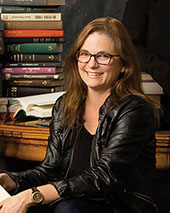 The November-December 2016 issue of
The November-December 2016 issue of 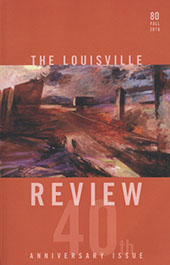
 Jorge Mayet’s De Mis Vivos y Mis Muertos (2008, electrical wire, paper, acrylics, fabric) is featured on the cover of the poetry journal
Jorge Mayet’s De Mis Vivos y Mis Muertos (2008, electrical wire, paper, acrylics, fabric) is featured on the cover of the poetry journal 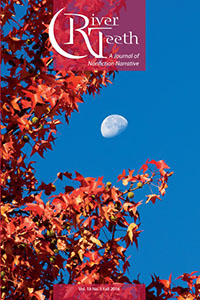 This fall 2016 cover of
This fall 2016 cover of 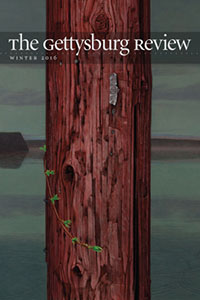 In keeping with what seems to be a ‘tree’ theme, this acrylic on panel by Eric Green, entitled “Pole,” is just sample of the kinds of stark yet lush images included in his full-color portfolio inside
In keeping with what seems to be a ‘tree’ theme, this acrylic on panel by Eric Green, entitled “Pole,” is just sample of the kinds of stark yet lush images included in his full-color portfolio inside 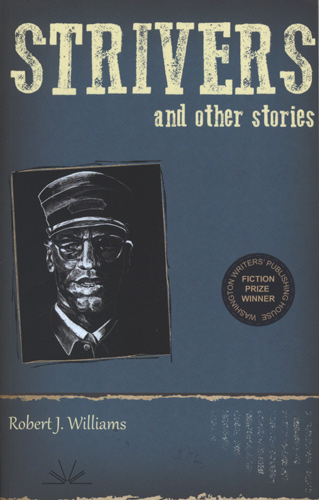 At the beginning of the month,
At the beginning of the month, 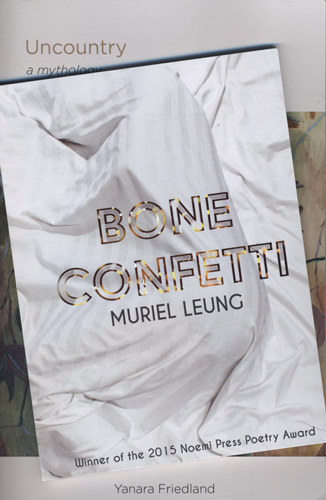 This past October, Noemi Press released the winner of the 2015 Noemi Press Poetry Award:
This past October, Noemi Press released the winner of the 2015 Noemi Press Poetry Award: 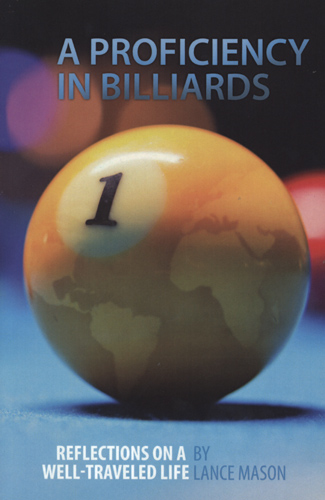 Pint-Size Publications, publisher of literary magazine Sport Literate, introduces their very first nonfiction, single-author book: A Proficiency in Billiards: Reflections from a Well-Traveled Life by Lance Mason. Mason first came to the editors’ attention with his essay “In the Lair of the Red Dragon,” published in an issue of Sport Literate earlier in the year.
Pint-Size Publications, publisher of literary magazine Sport Literate, introduces their very first nonfiction, single-author book: A Proficiency in Billiards: Reflections from a Well-Traveled Life by Lance Mason. Mason first came to the editors’ attention with his essay “In the Lair of the Red Dragon,” published in an issue of Sport Literate earlier in the year.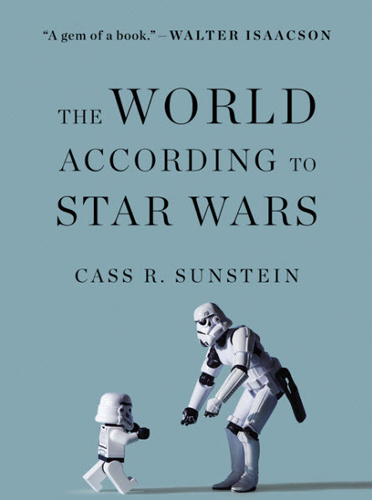 Author Cass R. Sunstein introduces his 2016 book, The World According to Star Wars (
Author Cass R. Sunstein introduces his 2016 book, The World According to Star Wars (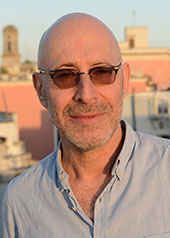 First place: Mark Fishman [pictured], of Paris, France, wins $3000 for “Songwad Road.” His story will be published in Issue 100 of Glimmer Train Stories.
First place: Mark Fishman [pictured], of Paris, France, wins $3000 for “Songwad Road.” His story will be published in Issue 100 of Glimmer Train Stories.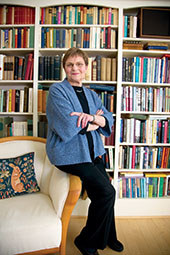 In the evenings of my childhood,
In the evenings of my childhood,